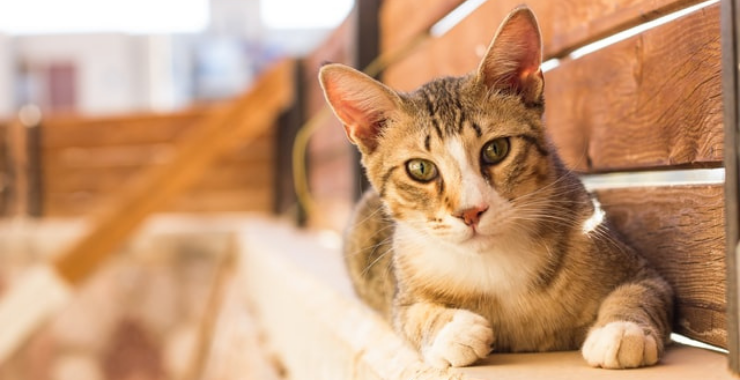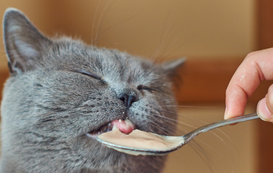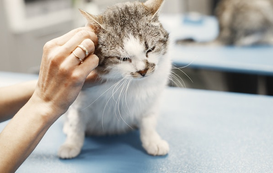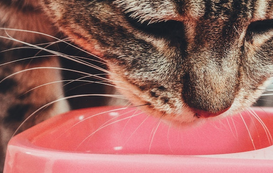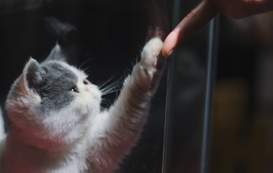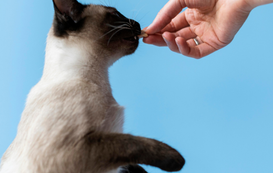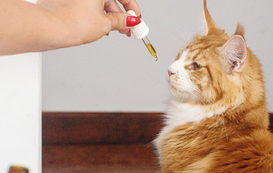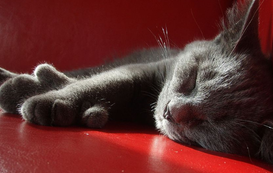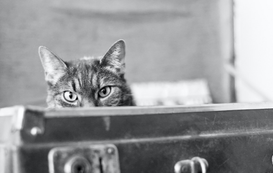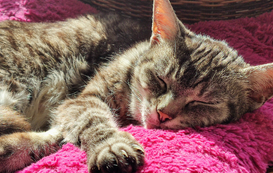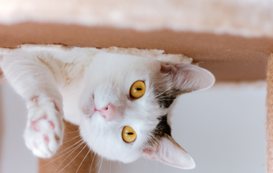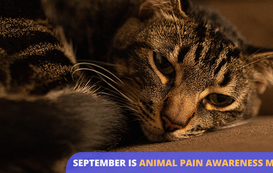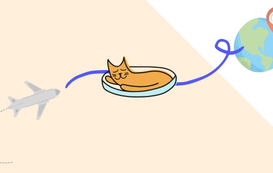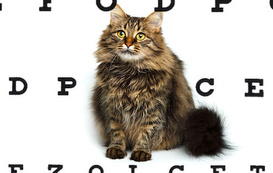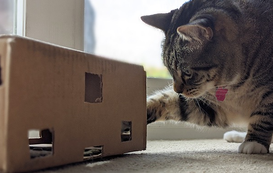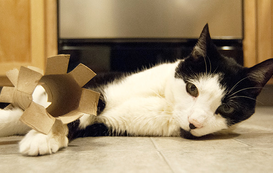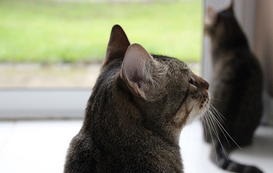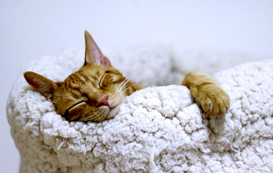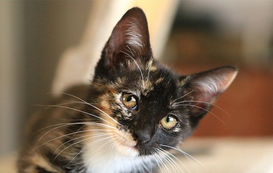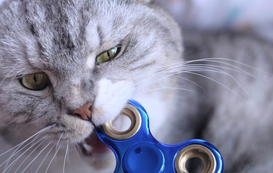Sterilization in cats offers many benefits: it can reduce the risk of major health issues and even double life expectancy. Yet, many owners are often reluctant to have their cats spayed or neutered mainly due to misconceptions and a lack of information.
For this reason, Spay/Neuter Awareness Month is celebrated by animal lovers all over the world every year during the month of February. Part of this initiative is also World Spay Day! First established in 1995, it takes place on the last Tuesday of every February.
Spay/Neuter Awareness Month aims to highlight the importance of animal sterilization, and encourage pet owners to neuter their furry companions. Veterinary professionals and organizations are also called to join in by promoting spaying/neutering as an effective way of saving animal lives.
Are you unsure about whether or not you should sterilize Fluffy? Let us shed some light on the many misconceptions surrounding cat neutering and give you some convincing reasons to have your furball spayed/neutered!
Why We Should All Be in Favor of Feline Sterilization
Cat overpopulation and feline euthanasia walk hand-in-hand, and are both big problems in our country. Cats reproduce at a very fast rate: the average cat will have 3 litters of 4 kittens in just one year. Over the course of seven years, a single unaltered female cat and her offspring can produce 420,000 cats. This makes it extremely difficult to keep their population under control.
Most of these kittens will be brought into the care of overcrowded animal shelters and eventually have to be euthanized unless adopted. Sadly, it is estimated that every year 6.5 million animals enter shelters across the U.S. and 3.2 million of those are cats. Unfortunately, 1.5 million healthy shelter animals are euthanized annually; that is 40% of rescued cats.
Spaying (the term used for females) or neutering (for males) limits the number of unplanned pregnancies in cats, thus allowing animal rescues to better care for the animals they already host. While cat adoptions have increased during covid-19, neutering/spaying is still one of the best ways to help our local shelters.
Cat Spaying/Neutering Misconceptions
Myth #1: Spaying/neutering my cat will change its purrsonality
No, sterilization will not cause Fluffy to be depressed or less affectionate. In fact, any established behavior - meaning habits that have become part of your cat’s temperament - will not be affected after spaying/neutering. It might however put an end to certain unwanted behaviors caused by libido and hormones, such as urinating to mark its territory.
Myth #2: My cat will become obese or gain weight
Well... yes Fluffy might become less active after being fixed, and therefore burn fewer calories. But feline obesity is definitely not a side effect of sterilization. As long as you provide the veterinarian-approved amount of food and daily exercise, Fluffy should keep his fabulous lean, yet squishy, shape.
Myth #3: Feline sterilization should be done after the first litter
Nope, a female cat can be fixed before she goes into heat for the first time, or even without having kittens at all. In fact, it is even recommended. Most veterinarians agree that cats (regardless of gender) should be fixed at 4-6 months old, before the first heat cycle. According to two experts at the VCA Hospitals “there is no behavioral, medical, or scientific reason for letting your cat have a litter before she is spayed.” There you have it, plain and simple.
Myth #4: Cat spaying/neutering is too expensive
We will not try to argue that the cost of cat neutering or spaying is too much to bear for some. However, kitty owners should see it as an investment, since fixing your cat will be much cheaper than the medical treatment of a possible cancer, the risk of which can be significantly reduced with sterilization. The ASPCA and plenty of local animal shelters also offer free or low-cost spay/neuter options, making it possible for any kind of budget.
Myth #5: But isn’t it dangerous and painful for the cat?
Rest assured, your furball will be fully anesthetized during the surgery, so it will not feel any pain. Cat sterilization is a very common and low-risk operation. Your furbaby might experience some discomfort post-surgery though, so let it rest until it's fully recovered. Like with any procedure that requires general anesthesia, there are some potential complications, but they are all extremely rare.
Benefits of Spaying or Neutering Your Cat
Aside from reducing the feline overpopulation and limiting the risk of unwanted litters, spaying/neutering offers many important health benefits, both for male and female cats!
1.- A lower risk of certain health problems
The biggest argument for spaying your female furball is the lower risk of developing mammary, ovarian and uterine cancers. Breast cancer in particular is extremely common in intact female cats. Yet if a female cat is spayed before her first heat cycle, the risk of developing mammary cancer drops to 0.5%. So do not wait to get Cookie fixed!
In neutered males the risk of testicular cancer is eliminated and the risk of prostate disease (such as hyperplasia and infections) is significantly reduced. Spaying/neutering your cat also limits the risk of contracting fatal infectious diseases such as feline AIDS (FIV) or feline leukemia (FLV).
2.- A prolonged life
Did you know that having your cat spayed/neutered can double its life expectancy? Not only do they avoid certain health issues, but the risk of accidents and injuries in altered cats is also reduced. According to a study, sterilized male cats live up to 62% longer than intact ones. It is estimated that the average stray cat lives between 2 to 5 years, while a sterilized cat can sometimes enjoy 20 years with its beloved owner(s).
3.- Less frustration and stress for your furball
It is a natural need for cats - just like any other animal - to reproduce. Unaltered cats go into heat year-round and as often as every 2-3 weeks. Assuming your four-legged bestie is not allowed to go outside and mate, it will be chronically stressed, frustrated and unsatisfied. Such a state can be very uncomfortable for a cat. Dr. Jennifer Coates, veterinary advisor with petMD, explains the issue perfectly: “it is more humane to surgically eliminate the desire to mate than to block mating but leave the urge intact.”
4.- No more unwanted behaviors... maybe
Does Cookie seem more affectionate all of a sudden? Does she purr more than usual or demand attention by rubbing against your legs? Maybe she yowls in the hall and nothing seems to satisfy her. Oh no, did she pee on your favorite throw pillow? Well... you know what this means. Cookie is in heat!
Cat spaying/neutering can eliminate behaviors that manifest during mating season, such as marking their territory with urination, aggressiveness or cat fights, roaming and distressed meowing. But remember, sterilization will have no effect on your cat’s personality. This means that if it used to bite as a kitten or is still doing it now, there is no guarantee this will change after surgery.
Convinced? Spread the word!
Help us promote Spay/Neuter Awareness Month by talking sharing it with your friends and family! The more people become aware of the benefits of cat sterilization, the less homeless cats there will be on our streets and more happy kitties in furever homes.
Planning to travel while your cat recovers from surgery? Find a cat sitter on Meowtel who can provide gentle care during your cat's recovery period.

